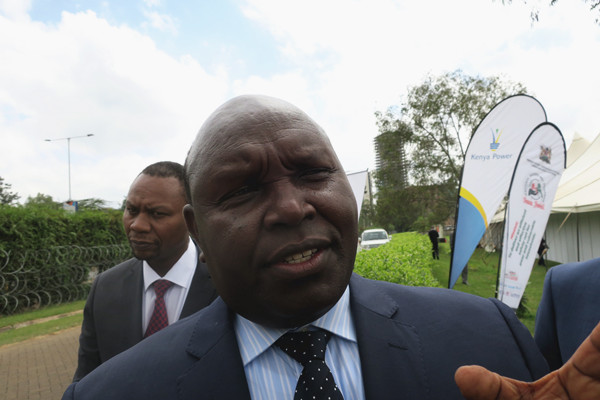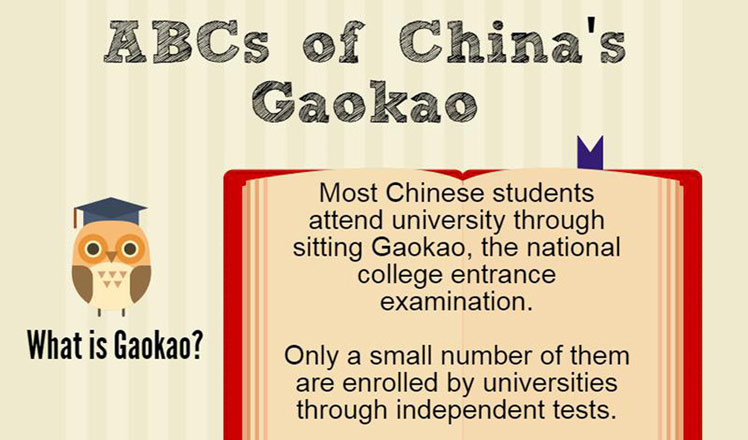Expanding investment opportunities for the private sector
Updated: 2016-06-07 22:33
By Lucie Morangi(chinadaily.com.cn)
|
||||||||
 |
|
John Mosonik, Kenya Infrastructure Principal Secretary said the government intends to increase road construction opportunities to the private sector. [Photo by Lucie Morangi/chinadaily.com.cn] |
Kenya is strongly pushing forward its plans to develop 10,000 kilometers of new paved road using private funding by jumpstarting the annuity road financing plan.
According to infrastructure Principal Secretary John Mosonik, the funding mechanism has been revised and has considered contentious stakeholder issues to ensure the success of the project.
"Government allocation to the infrastructure sector is not enough. This is a capital intensive program and for us to breach the funding deficit and meet our national goals, we need to rope in the private sector," Mosonik said during the World Bank open day held in Nairobi.
Under the annuity financing plan, successful contractors seek funds from financial institutions, which will only pay upon verification of the job done. The state then reimburses the lender over an agreed period. The government was to negotiate for a uniform interest rate.
Launched in 2014 by President Uhuru Kenyatta, the model had hit headwinds after local banks became reluctant to release funds of around $2.48 billion.
The bone of contention was on the rate of interest to be charged on loans taken by contractors.
According to Mosonik, the issues have been ironed out and the government has already started launching some low volume projects.
According to an anonymous government source, the International Finance Corporation (IFC), the financing arm of the World Bank, has agreed to buy off some loans.
The source said contentious issues such as interest rates have been mitigated between the bank and the government to ensure that the program moves forward. Mosonik also said that financing models such as Build, Own, Operate and Transfer (BOOT) are being explored. This is public private partnership model where a private organization develops a public project and then hands it over to the state after recouping its capital through plans such as the toll stations.
"This has worked in Asian countries, so it is proven as effective in expanding road infrastructure with private funding," said the Principal Secretary. The model has been hugely successful in China and is its contractors preferred model while undertaking construction projects in other Asian and South American countries.
Currently, the government has outsourced the services of four foreign companies to develop a toll policy and implementation plans for the four key roads (Mombasa-Nairobi road (490km), Nairobi-Thika road (50km), Nairobi-Nakuru-Mau Summit Road(190km) and the Southern Bypass (28.5km)).
Meanwhile, the World Bank estimated that traffic jams cost Nairobi city $800,000 to $4 million per day in lost productivity.
Meskerem Brhane, program leader at the institution said there’s need to create more arteries out of the city to reduce commute time. The Bank is funding the construction of 53km Jomo Kenyatta International Airport-Rironi road to ease congestion.
- Suspected IS terrorists arrested in Germany
- Japanese boy abandoned by parents in Hokkaido forest found alive
- China to build Africa's biggest university library
- 'Kill list' found in UCLA campus shooter's residence: Police
- Swiss declare Alps tamed as Gotthard rail tunnel opens
- China urges Japan to properly settle Chinese forced laborers issue

 Popular foods to break fast during holy month of Ramadan
Popular foods to break fast during holy month of Ramadan
 Top 10 biggest brands in Asia listed in media report
Top 10 biggest brands in Asia listed in media report
 Things you need to know about China's gaokao
Things you need to know about China's gaokao
 The world's most striking images: May 30 - June 5
The world's most striking images: May 30 - June 5
 Djokovic conquers Roland Garros to join tennis pantheon
Djokovic conquers Roland Garros to join tennis pantheon
 Students receive gaokao cheers in east China
Students receive gaokao cheers in east China
 Students use creative ways to relieve gaokao stress
Students use creative ways to relieve gaokao stress
 Frederik the Great: Is it a horse or a stunning statue?
Frederik the Great: Is it a horse or a stunning statue?
Most Viewed
Editor's Picks

|

|

|

|

|

|
Today's Top News
Abe's blame game reveals his policies failing to get results
Ending wildlife trafficking must be policy priority in Asia
Effects of supply-side reform take time to be seen
Chinese State Councilor Yang Jiechi to meet Kerry
Chinese stocks surge on back of MSCI rumors
Liang avoids jail in shooting death
China's finance minister addresses ratings downgrade
Duke alumni visit Chinese Embassy
US Weekly

|

|








